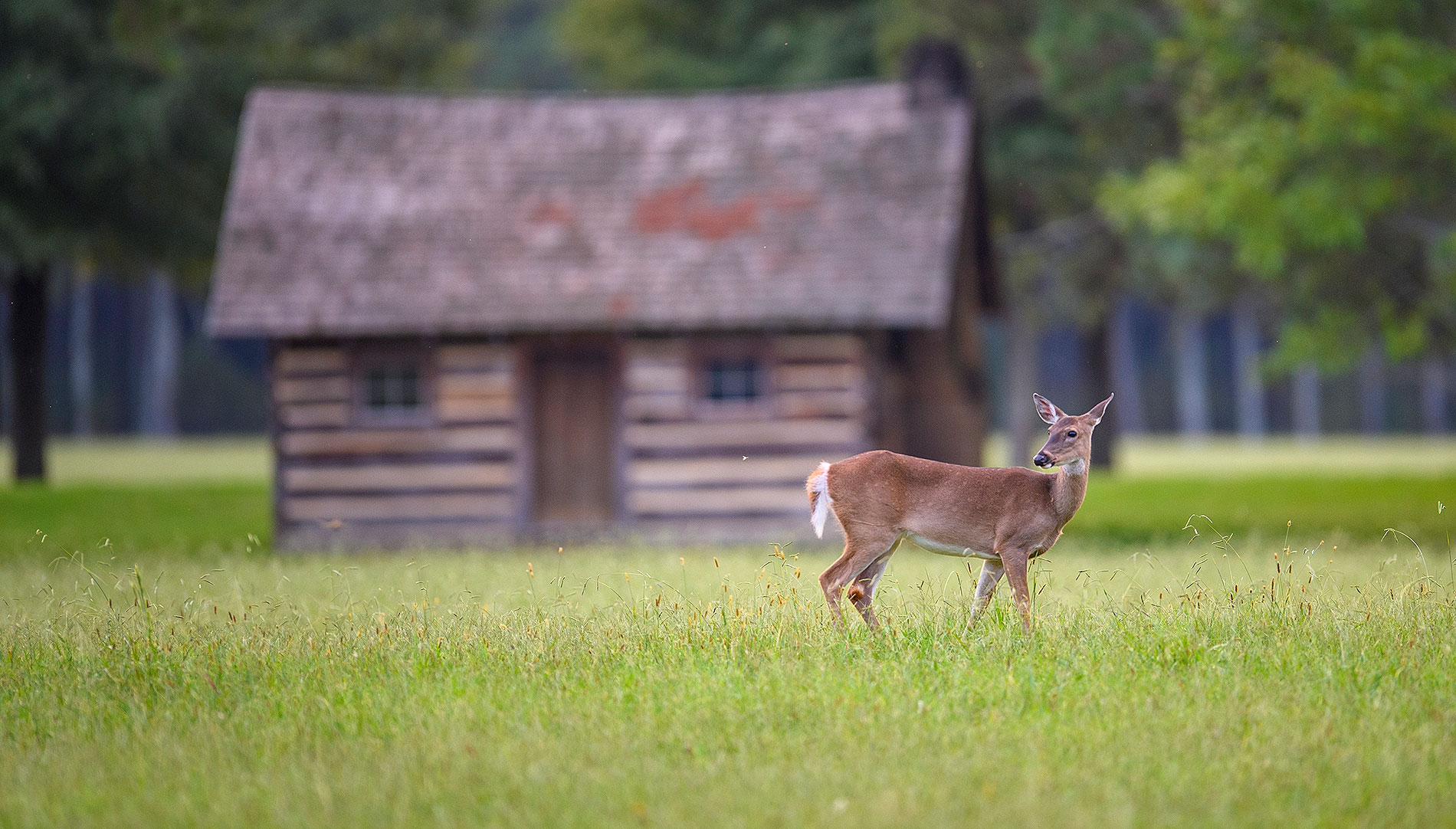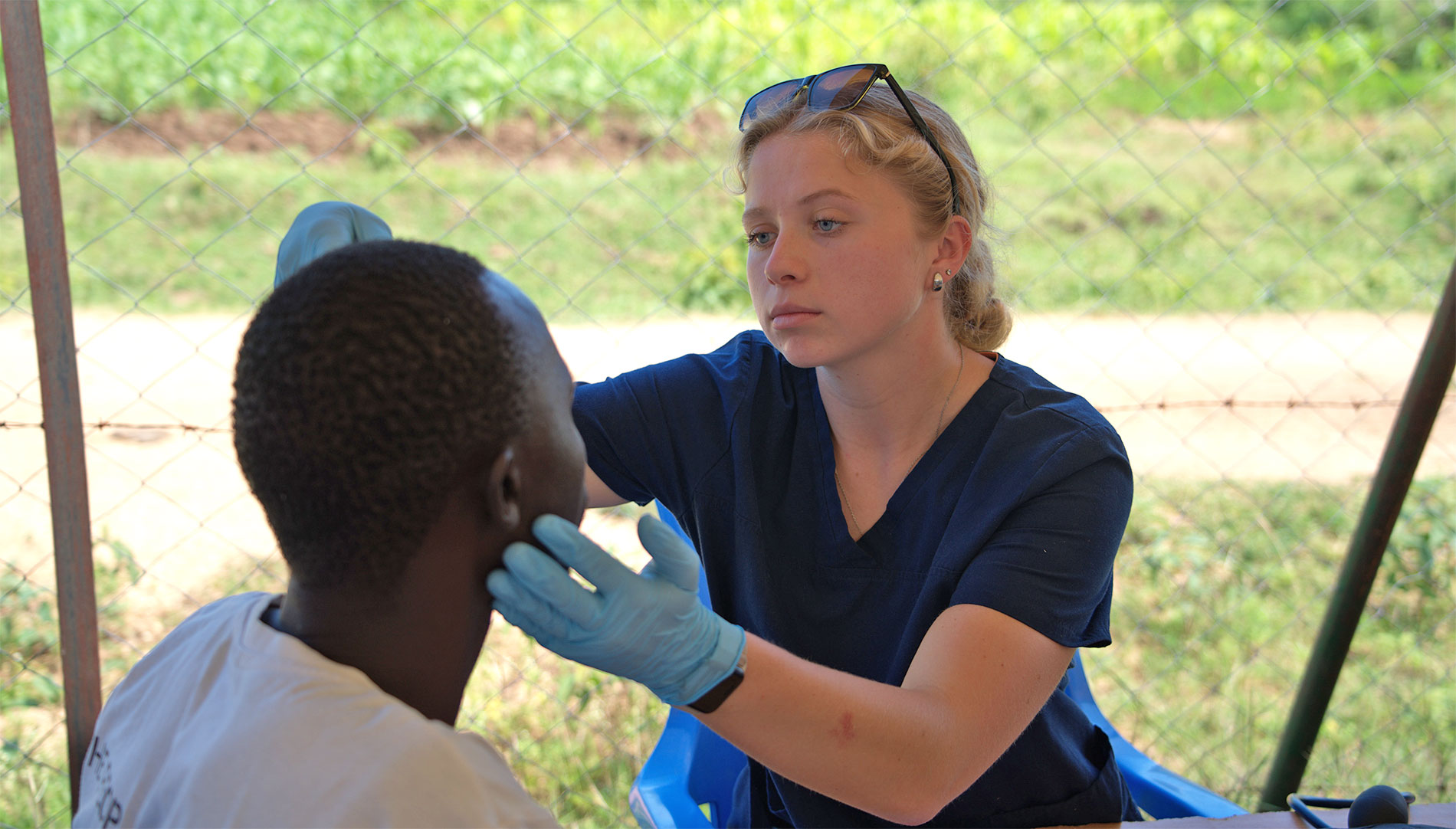
Dr. Stephen Briggs
On April 27, hundreds of Berry students spread across Valhalla’s Williams Field to celebrate the last day of classes with a grand fireworks display. Frisbees flew, groups chatted and music filled the air in advance of the show. It was a fitting tribute to a challenging year when all manner of forces seemed to conspire against our ability to be together normally. The sense of community was palpable.
For many students, Berry becomes a second home, a place of belonging, at a formative time in their lives. This spring, our website for alumni, AlwaysBerry.com, has focused on lifelong connections and enduring relational bonds formed at Berry, inviting people to share personal stories around the theme of “My Berry Family.” Of course – at Berry – this spawned a commemorative t-shirt. While it may be just another t-shirt, it carries a discerning message:
Family: a group of people who genuinely love, trust, care about and look out for each other.
This definition pushes past bloodlines and ancestry, getting to the heart of what binds people together. Whether we talk in terms of family or community, this mindset is integral to Berry’s aspiration to create a culture of belonging.
The benefits and obligations of community
Life was rudimentary in Berry’s early days, and the fledgling community endured the myriad of crises (major and minor) that plague any start-up enterprise. One of the earliest came after a spell of hard work. The boys had an appreciable need for clean clothes, and there were no laundry services. The students willingly prepared large tubs of hot, soapy water, but when Martha Berry instructed them on how to proceed, they solemnly refused.
By rights, they asserted, menfolk did not wash clothes. Martha insisted the clothes needed washing, and the boys maintained, “by somebody else, ma’am.” Ending the stalemate, Martha picked up the first pile of soiled clothes and set to work. It was not long before the boys decided they could help after all.

For Martha, this lesson in character was as important as grammar or mathematics, and she later emphasized it in the motto of the school: “Not to be ministered unto, but to minister.” She taught that it was more important to meet other’s needs well (by serving) than to insist on one’s own rights (to be served). Her message was as difficult and countercultural then as it is now.
In that moment, Martha was patient with her pupils, tutoring with humility and a generosity of spirit. She wanted the boys to grasp the foundational value of belonging to a community that cares for one another in practical ways. She was introducing a mindset she believed would set them apart for good as parents, spouses, workers and citizens.
A second home
Even today, the transition to Berry is not always easy for students. Most are uprooted from a well-developed web of friendships, and it takes time in a new place to develop the same level of trust and commitment. Relationships seem superficial for a while, despite the potential for new friends all around. Building new friendships may be especially challenging for students who are reticent, international or from a predominantly minority community.
While it is normal to seek out friends similar to us, one of the best features of a college like Berry is the opportunity to become friends with people who are distinctly different. Such friendships prepare us personally and professionally to live in communities that are rich in complexity. We come to understand ourselves more profoundly as we confront our similarities and differences in trusting relationships. We become more cognizant of our unexamined assumptions and preferences.

Some of the most interesting friendships at Berry emerge naturally in the context of shared pursuits. Choir members and theatre participants spend hours rehearsing together. Varsity athletes become friends during practices and bus rides. Students in the same classes form study groups. And, distinctive to Berry, friendships form through collaborative student work roles. All these contexts involve teams that offer a deep sense of belonging as students work side by side on common projects or to achieve mutual goals. Friendships emerge, sometimes despite initial misgivings, that transcend demographic, political and cultural differences. That is the promise and potential of a residential college.
Embracing tension
This past year proved a hard test for the college’s culture of belonging. The very features that sustain and invigorate a residential college came under assault during the pandemic. It is hard to create community when faces are covered by masks, people are distanced by six feet, and gatherings are limited to a dozen people. Mealtimes are frustrating when you are separated by plexiglass.
Individual responses to the risks of COVID-19 differed significantly, often as a function of personality. Some of us were acutely unsettled by the risks and unwavering in our efforts to avoid exposure to the virus. Others judged the probability of serious infection to be relatively low and were easygoing in our approach. In my interactions with various groups – including campus leaders, faculty, other college presidents, my own family – I was struck by the range and intensity of responses. The pandemic elicited strong emotions. Even now, the hope provided by the vaccines is controversial.
Berry’s success this past year can be attributed in part to its willingness to embrace tension, a practice that has been established over the years as evidenced in its founding decision to be nondenominational. In this regard, Berry encourages faith and champions values – such as patience, humility and a generosity of spirit – that are grounded in a Christian perspective. At the same time, the college requires no faith commitments and is willing to engage and benefit from other viewpoints. Although some would prefer the college to be definitively secular or Christian, Berry chooses its own distinctive path.
This year, the college also has grappled with a different aspect of diversity and inclusiveness, one brought to the forefront by the wrongful killing of George Floyd by a police officer and the resulting racial protests. Racial unrest became a major issue in the presidential election, with demands for structural reform in American society. Student activists across the nation pointed to problem areas at colleges and universities, and Berry was no exception. The rhetoric and tactics of the election season aggravated racial tension and provoked a sense of urgency.
Berry’s student activists pressed for the college to issue a “no tolerance” statement regarding racist behavior and establish policies to ensure a campus climate that is proactively antiracist and safe for students of color. Others were concerned that such statements and policies would assume and impose a particular political narrative and stifle honest questions and dialogue.
As we engaged this controversy at Berry, I convened a presidential advisory committee and six subcommittees to consider thoughtfully how the college could improve its diversity and inclusion efforts. Consistent with its commitments as a residential college, Berry has affirmed that it intentionally holds certain principles and commitments in tension. It embraces equally a respect for difference and a respect for dialogue. Berry values the essential dignity of all individuals and rejects actions or statements that are hostile toward individuals based on attributes that define their personhood. The college also values freedom of expression and inquiry as defining attributes of an academic community and views caring and candid dialogue as essential for personal and professional development. It is averse to censuring ideas.
In addition, this year was marked by dissension related to COVID-19. Berry’s decisions pertaining to the pandemic were made based on two principles: one, to nurture the health and wellness of the campus community, and the other, to provide as normal an educational experience as possible, emphasizing educational quality and the integrity of the residential experience. One principle did not take precedence over the other, which meant that decisions often were contingent and adjusted every few weeks based on updated metrics and information. It required the campus community to remain flexible, agile and trusting.

Advancing through this tension was possible only because of the daily goodwill of students, faculty and staff, as well as parents, alumni and friends who had to forgo cherished on-campus experiences. It was a challenging path, but one that concluded with a sky full of fireworks at the end of April and a commencement ceremony 10 days later for more than 400 undergraduates who were launching from Berry in remarkable ways.
We live in a complicated world, and Berry benefits from a diversity of people and a diversity of viewpoints. Although the coming school year seems full of promise, we should expect more crises in the years ahead. We should prepare. And we would do well to heed the words of Judge Learned Hand in an influential speech near the end of World War II:
The spirit of liberty is the spirit which is not too sure that it is right. The spirit of liberty is the spirit which seeks to understand the minds of other men and women; the spirit of liberty is the spirit which weighs their interests alongside its own without bias.



